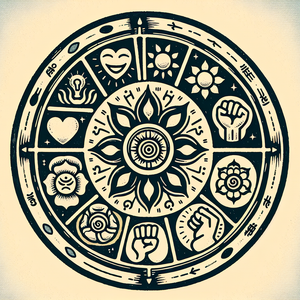The Hidden Costs of Living in NYC

Housing stands out as the most substantial financial burden for residents of New York City. According to the NYC Department of Housing Preservation and Development, the median rent for a one-bedroom apartment in Manhattan is approximately $3,500 per month. In boroughs like Brooklyn and Queens, rental prices are also on the rise, making affordable housing increasingly elusive. For an individual earning a median salary of around $70,000, this translates to dedicating nearly 60% of their income to rent—far exceeding the recommended 30% threshold for housing costs. Moreover, the costs associated with housing extend beyond the monthly rent. Hidden fees such as security deposits (often equivalent to one month's rent), broker fees (which can range from one month's rent to 15% of the annual rent), and maintenance expenses can quickly add up. For someone just starting out in the city, these initial outlays can represent a significant financial hurdle, further complicating their transition to NYC life.
Transportation: Navigating the Urban Jungle
While NYC boasts one of the most extensive public transportation systems in the world, the costs associated with commuting can still take a toll on residents' budgets. A monthly MetroCard, which provides unlimited subway and bus rides, currently costs $127. For those living in the outer boroughs, additional expenses such as ferry rides or express train fees can further inflate transportation costs. For those who opt to own a car, the costs can be even more daunting. With average parking fees exceeding $400 per month and the constant risk of street cleaning tickets, the dream of owning a vehicle in the city can quickly turn into a financial nightmare. Additionally, maintenance costs, insurance, and gas prices can compound the financial burden of car ownership. As such, understanding transportation costs is essential for anyone considering a move to NYC, as they can significantly affect overall living expenses.
Everyday Expenses: The Price of Convenience
Beyond housing and transportation, the everyday expenses of living in New York City can be formidable. Grocery prices often surpass national averages, with a typical grocery bill running 30% higher than in other major cities. Basic staples such as milk, bread, and eggs may cost significantly more than one would expect, adding to the monthly budgetary strain. Dining out is another area where costs can add up quickly. The average meal at a mid-range restaurant can easily reach $20 per person, and with the city's vibrant culinary scene encouraging frequent dining out, individuals may find themselves overspending. Additionally, the cost of entertainment, healthcare, and childcare can further complicate financial planning. For instance, the average babysitter charges between $20 and $25 per hour, making childcare expenses a major consideration for families.
While tools like the NYC salary calculator provide valuable insights into potential earnings, it is essential for job seekers and residents alike to recognize the hidden costs associated with living in this vibrant city. Housing, transportation, and everyday expenses create a complex financial web that can challenge even the most adept budgeters. As the allure of New York City continues to draw individuals from all walks of life, it is crucial to approach financial planning with a comprehensive understanding of what living in this metropolis truly entails. By acknowledging and preparing for these hidden costs, residents can navigate the financial challenges inherent in city life and better position themselves to seize the opportunities that New York City has to offer. Understanding the real costs can transform the experience from one of struggle to one of empowerment, allowing individuals to thrive in one of the world’s most dynamic environments.
Urban Financial Analyst
NYC Department of Housing Preservation and Development, urban planning firms, financial consultancies
Core Responsibilities
Analyze economic trends and housing market data to provide insights for city planners and investors.
Develop financial models to project future housing costs and assess the impact of new policies on urban living.
Collaborate with government agencies and private developers to create sustainable financial strategies.
Required Skills
Proficiency in financial modeling and data analysis software (e.g., Excel, Tableau).
Strong understanding of urban economics and real estate markets.
Excellent communication skills for presenting complex data to stakeholders.
Transportation Planner
NYC Department of Transportation, urban planning agencies, transportation consultancies
Core Responsibilities
Design and evaluate transportation systems and policies to improve city mobility and reduce costs for residents.
Conduct feasibility studies and analyze the socioeconomic impact of public transport projects.
Collaborate with city officials to implement innovative solutions for transportation challenges.
Required Skills
Knowledge of transportation modeling software and GIS (Geographic Information Systems).
Strong analytical skills with experience in data collection and statistical analysis.
Ability to engage with community stakeholders to gather insights and feedback.
Cost of Living Researcher
Research institutions, local government agencies, nonprofit organizations focused on economic development
Core Responsibilities
Conduct comprehensive studies on the cost of living across different neighborhoods in NYC, focusing on housing, utilities, and everyday expenses.
Create reports and visualizations that highlight financial burdens faced by residents.
Collaborate with government and nonprofit organizations to inform policy decisions and support community initiatives.
Required Skills
Experience in economic research and survey methodology.
Strong analytical skills and proficiency with statistical analysis software (e.g., SPSS, R).
Excellent writing skills for producing clear and impactful reports.
Community Outreach Coordinator
Community organizations, local government, housing advocacy groups
Core Responsibilities
Develop and implement programs that educate residents about hidden costs of living, including housing and transportation.
Engage with local communities to gather feedback on financial challenges and advocate for affordable living solutions.
Organize workshops and seminars aimed at financial literacy and budgeting for urban dwellers.
Required Skills
Strong interpersonal and communication skills to build relationships with diverse community groups.
Experience in program development and project management.
Knowledge of financial planning concepts and resources available to residents.
Real Estate Market Research Analyst
Real estate firms, investment companies, market research firms specializing in urban development
Core Responsibilities
Analyze real estate trends to provide insights into housing affordability and investment opportunities in NYC.
Conduct market surveys and compile data on property values, rental rates, and demographic shifts.
Prepare reports for real estate firms and investors to inform strategic decisions.
Required Skills
Strong analytical skills and proficiency in real estate analytics software.
Experience with data visualization tools to present findings effectively.
In-depth knowledge of the NYC real estate market and regulatory environment.


